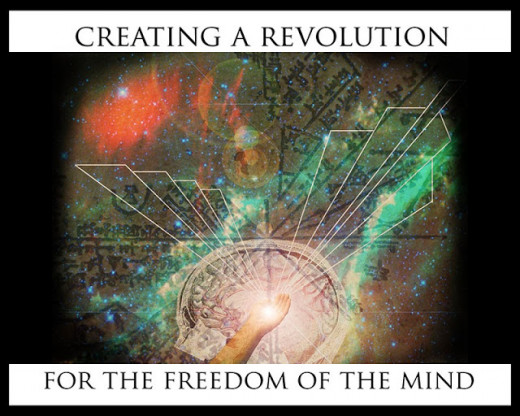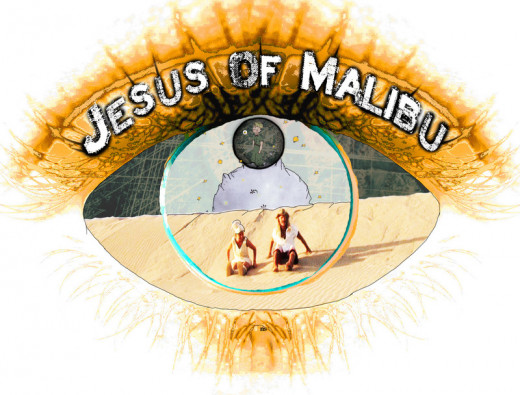Jesus-of-Malibu-The-happy-accident
The Revolution for the Freedom of the Mind
There is a word in the English language called Serendipity. It is a word that can also mean, "a happy accident" or "pleasant surprise". When I saw the trailer for the independent film Jesus of Malibu it was one of those moments. It was one of those moments when you don’t know why you found something, you only know that when you weren’t looking, it somehow found you.
Serendipity has been voted one of the ten English words voted hardest to translate, yet why? It is certainly a phenomenon that we all know from coast to coast and from spirit to spirit. Black or White, Christian or Muslim, serendipity is that moment in time when a set of random variables or circumstances come together in a meaningful way for those who experience it. It can never be seen but it does have a sound, like music being heard, a resonation, a stirring in the soul, where we like instruments become in tune with the notes of each of our own lives.

Jesus of Malibu is an effort not to search for something, but to open the door to what is already there. Our hearts, our minds, to truth, to meaning, for there is this lethargy, this vanity, that the film speaks of that has washed over us, this force that ever seeks to make us forget those real and essential things that are invisible to the eye. This film encourages me to do more to nurture and cherish more of what is valid and special about being human, our capacity for love, individual expression and meaning.
To me the filmography was expansive for the soul, the footage of the desert, the colors, the contrasts were like opening up a panoramic sky with images of nature poetically infused with words, dance and song. It contained an eclectic collection of props like a small child would gather when set out to utilize whatever was available to make something meaningful to play with. I enjoyed the film because I enjoy and appreciate the raw, unassuming, childlike side within each and every one of us and the two characters in Jesus of Malibu were just that! Often art can get too messy, simplicity often can be even more profound than the most convoluted and complicated characters or storylines. When things are created in art in a simple way sometimes this is the most striking. It leaves room for the mind to interpret, to find its own meaning rather than to be swept away by pretentious persuasions and hollow entertainments.
To me the filmography was expansive for the soul, the footage of the desert, the colors, the contrasts were like opening up a panoramic sky with images of nature poetically infused with words, dance and song. It contained an eclectic collection of props like a small child would gather when set out to utilize whatever was available to make something meaningful to play with. I enjoyed the film because I enjoy and appreciate the raw, unassuming, childlike side within each and every one of us and the two characters in Jesus of Malibu were just that! Often art can get too messy, simplicity often can be even more profound than the most convoluted and complicated characters or storylines. When things are created in art in a simple way sometimes this is the most striking. It leaves room for the mind to interpret, to find its own meaning rather than to be swept away by pretentious persuasions and hollow entertainments.

Rather than let life pass by in a mad rush for striving for all the wrong things, this film inspires me to be different. Anais and William may appear to be two sweet and small, baby cubs frolicking around in the desert but they are actually bold lions! Serendipity is, by the way, a Sanskrit word for “dwelling-place-of-lions’ island – and I think lions are a good way to describe their courageous efforts. Especially after watching the footage on their website from a variety of national broadcast television stations naming them as the depositors of the “mystery baby grand piano left on a sandbar in Brisbane, Florida”. I had to laugh in delight at seeing these two likeable and relaxed characters displaying a bit more prowess than your average moviemakers!
Anais and William have created a forum, an idea and hope for art in the future to be something bigger and bolder in spirit and courage to expand and free the mind! For two years they set out to accentuate and nurture something within their own selves to later give back to others in their film, Jesus of Malibu. The mind is such a powerful and yet such a fragile mechanism at the same time. It is capable of astounding acts of kindness and courage and just as equally so of every kind of crime and depravity against nature. The freedom of the mind is something we all have to fight for in whatever way we can. The mind is wayward, never resting from searching, and most often, for all the wrong things and for things that do not appease it. The mind is a constant radar honing in on every kind of impression and perception, easily influenced and drawn astray as William and Anais say, “by the vanities of this world.”

How do I know? I know because I think it is something we all know deep down inside about ourselves, of the duality of our own human nature. It is the battle between the flesh and the spirit. In the trailer of Jesus of Malibu Anais says, “When did man become afraid of his thoughts and feelings?” It is a good question. Perhaps this is why we strive, why we distract, why we retreat into the numbing monotony and conformity of things that are not who we really are.
Jesus of Malibu is not preachy, pompous or narrow although it can be confrontational in the sense of confronting ourselves to define our own roles in society and to bold action against the status quo. More than anything the film gently suggests for us to be conscious, responsible and inquisitive into the nature of ourselves and the nature of others. Encourages us to fight for the freedom of the mind and soul by breaking through barriers of pop culture, politics, religion, by supporting visionary, ‘transcendental art’ over mass-produced mindless entertainment. Not only for the sake of art but also more importantly, for the sake of our souls, for the health and vitality of our lives. Anais and William believe we can change the world. It is said that the whole is only so good as the sum of its parts. My feelings of my own responsibility in that equation has been set into motion in part by Jesus of Malibu - so thank you for playing your special part in mine.
No comments:
Post a Comment